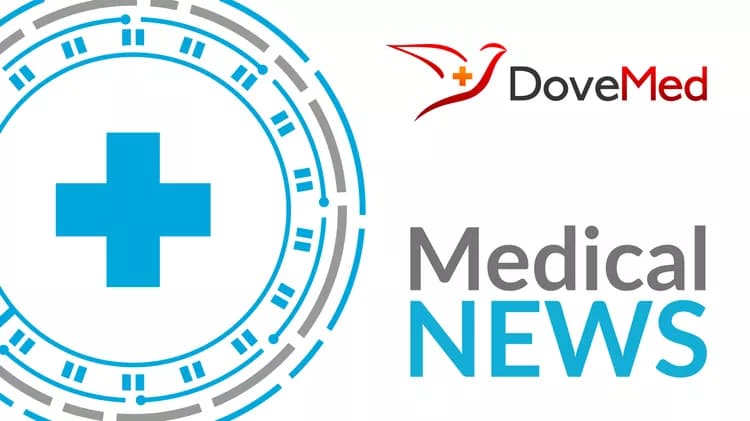
'One Weird Trick' To Cut Belly Fat? Follow A Heart-Healthy Diet!
Do you wish you could decrease your waistline? Reducing abdominal obesity can lower health risks -- but despite claims you may have seen on the Internet, no trending diet can help you specifically eliminate belly fat, according to an article in ACSM's Health & Fitness Journal®."There is still no miracle diet, food, nutrient, or bioactive component that will target abdominal fat," writes Kari D. Pilolla, PhD, RDN, of the California Polytechnic State University in San Luis Obispo. But a heart-healthy diet high in fiber and low in saturated fats is a great way to prevent and reduce abdominal obesity, according to the article, part of a special theme issue of ACSM's Health & Fitness Journal, focusing on Nutrition.
What's New in Nutrition? New Updates for Health and Fitness Professionals
Amid the ongoing obesity epidemic, there is increasing attention to the health risks associated with abdominal obesity -- excess fat stored around the abdomen. According to the most recent data, 54 percent of Americans have abdominal obesity, while the estimated average waist circumference is growing.
"Independent of body weight, a larger waist circumference increases risk for cardiovascular disease, diabetes, and metabolic syndrome," Dr. Pilolla writes. These risks are mainly related to visceral adipose tissue -- fat stored below the abdominal muscles, surrounding the major internal organs. Visceral adipose tissue appears to be more "metabolically active" than subcutaneous fat, stored under the skin but above the abdominal muscles.
While definitions vary, abdominal obesity has been defined as a waist circumference of about 34 inches in women and 40 inches in men. Measuring waist circumference is the most common and convenient method of assessing abdominal obesity, and it corresponds well to other techniques (dual-energy x-ray absorptiometry and CT/MRI scans). Risk of abdominal obesity increases with age, especially in women, and with changes in hormone levels.
Can diet help to fight abdominal obesity? These days, the Internet is full of extravagant claims of "new discoveries" to "cure belly fat." Diets touted as reducing abdominal obesity include intermittent fasting, high-protein diets, the "Paleo" diet, and green tea, among many others. But there's a lack of high-quality evidence on these trending diets, none of which has been shown more effective than other types of energy-restricted (reduced-calorie) diets.
The good news is, some diet characteristics appear helpful in reducing or preventing abdominal obesity -- particularly lower intake of trans and saturated fats and higher intake of fiber. "These recommendations are consistent with heart-healthy diets like the NIH-developed Dietary Approaches to Stop Hypertension (DASH) diet and the Mediterranean-style diet," Dr. Pilolla writes. Her article includes information on these diets -- both great options as part of a weight loss program including diet and/or exercise, as recommended by the ACSM.
Dr. Pilolla recommends that health and fitness professionals assess and monitor abdominal obesity in their clients, and to evaluate their cardiometabolic health risks. Clients should be educated about evidence-based, heart-healthy diets; working with a Registered Dietitian Nutritionist can help in achieving healthy weight loss through diet and exercise.
"With the health consequences associated with abdominal obesity, research will not cease in this area," Dr. Pilolla comments. "Health and fitness professionals should continue to stay up-to-date and critical of peer-reviewed, published research evidence. A single study, even if well designed, does not support changing diet or exercise recommendations."
The theme issue addresses a range of nutrition-related topics of interest to health and fitness professionals, including food and fitness for active older adults, sport nutrition to optimize performance, the benefits of a "food first" approach for athletes, potential harmful effects of common diet trends, and diet and exercise steps to a healthier gut. Laura Kruskall, PhD, RDN, CSSD, LD, FACSM, FAND, of University of Nevada, Las Vegas, is Guest Editor of the special issue.
"As a sports dietitian and ACSM-Certified Exercise Physiologist, I certainly understand that nutrition and exercise go hand in hand," Dr. Kruskall comments. "It is important for both exercise and nutrition professions to give consistent information that is accurate, evidence-based, and applicable to our patients and clients. This special issue is full of such information written by experts in the field. I hope readers enjoy this issue and leave with some exciting take-away points that can be used in practice."
Related Articles
Test Your Knowledge
Asked by users
Related Centers
Related Specialties
Related Physicians
Related Procedures
Related Resources
Join DoveHubs
and connect with fellow professionals

0 Comments
Please log in to post a comment.